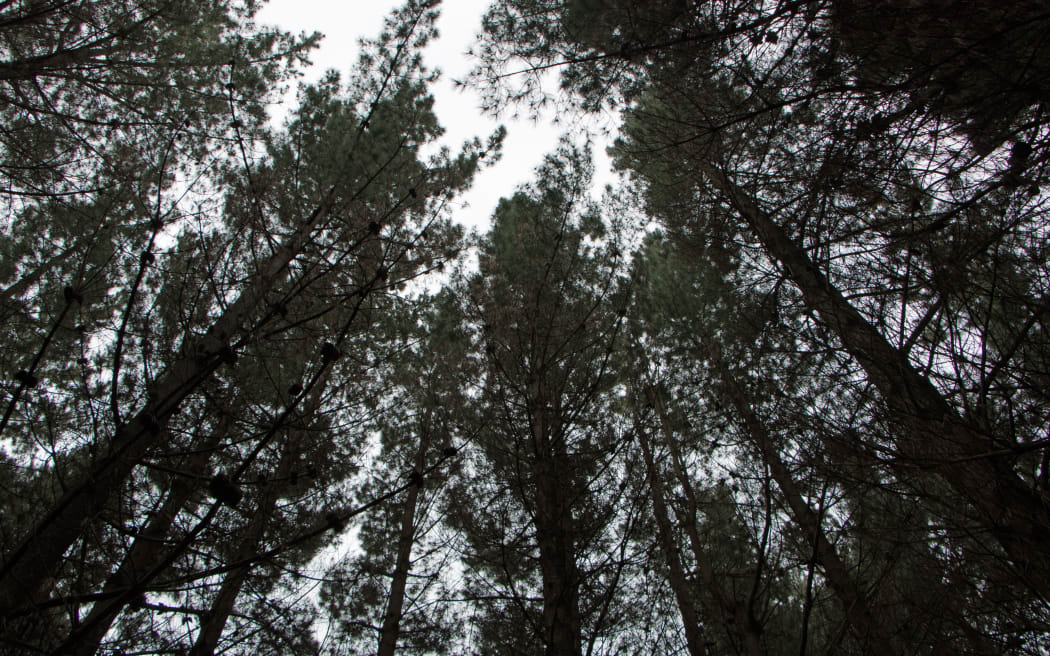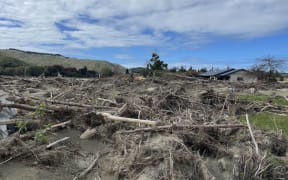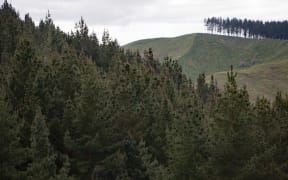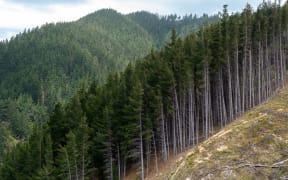
Enterprise Investments Limited intends to convert a grazing farm in Bay of Plenty into 180 hectares of radiata pine. (file image) Photo: RNZ / Kate Newton
The first decisions under new rules for farm-to-forest conversions have been released, with two of the three applications being declined.
The government introduced the Special Forestry Test in 2018 to a bid to support the government's forestry priorities, including more tree planting.
But after sales ramped up and concerns were raised about the amount of productive land being planted in trees, changes were made.
Now any foreign investors wanting to purchase farmland to convert into forestry must apply under the benefit to New Zealand Test.
The Overseas Investment Office (OIO) said since the changes came into force, 18 applications for farm-to-forest conversions had been made - with the first three decisions released.
One consent granted was for UK company Enterprise Investments Limited to buy a 237-hectare grazing farm in Bay of Plenty.
The farm is steeper country, predominantly land classes 6 and 7 with no dwellings on the land.
Enterprise Investments Limited intends to convert the land planting about 180 hectares of radiata pine.
The OIO's decision said: "The Investment is likely to benefit to New Zealand through increased job opportunities, increased revenue from the land, increased domestic processing of primary products from the Land, various ecological benefits, enhancing an historic heritage feature on the Land, advancing significant government policy and potential increased public access."
"Consent was granted as Ministers were satisfied that the Applicant has met the investor test criterion and that the Investment is likely to result in benefit to New Zealand."
Two other applications were declined, one was from Swiss company Corisol New Zealand Limited which wanted to buy a 600-hectare sheep farm in Otago, and the other was by US company Port Blakely Limited which wanted to buy a 800-hectare sheep and beef farm in Otago.
In both cases, consent was declined because ministers were not satisfied the likely benefit was proportionate to the sensitivity of the land and the nature of the overseas investment.







